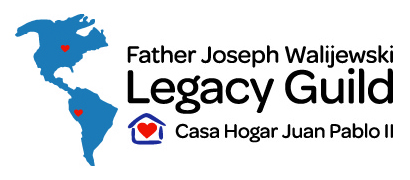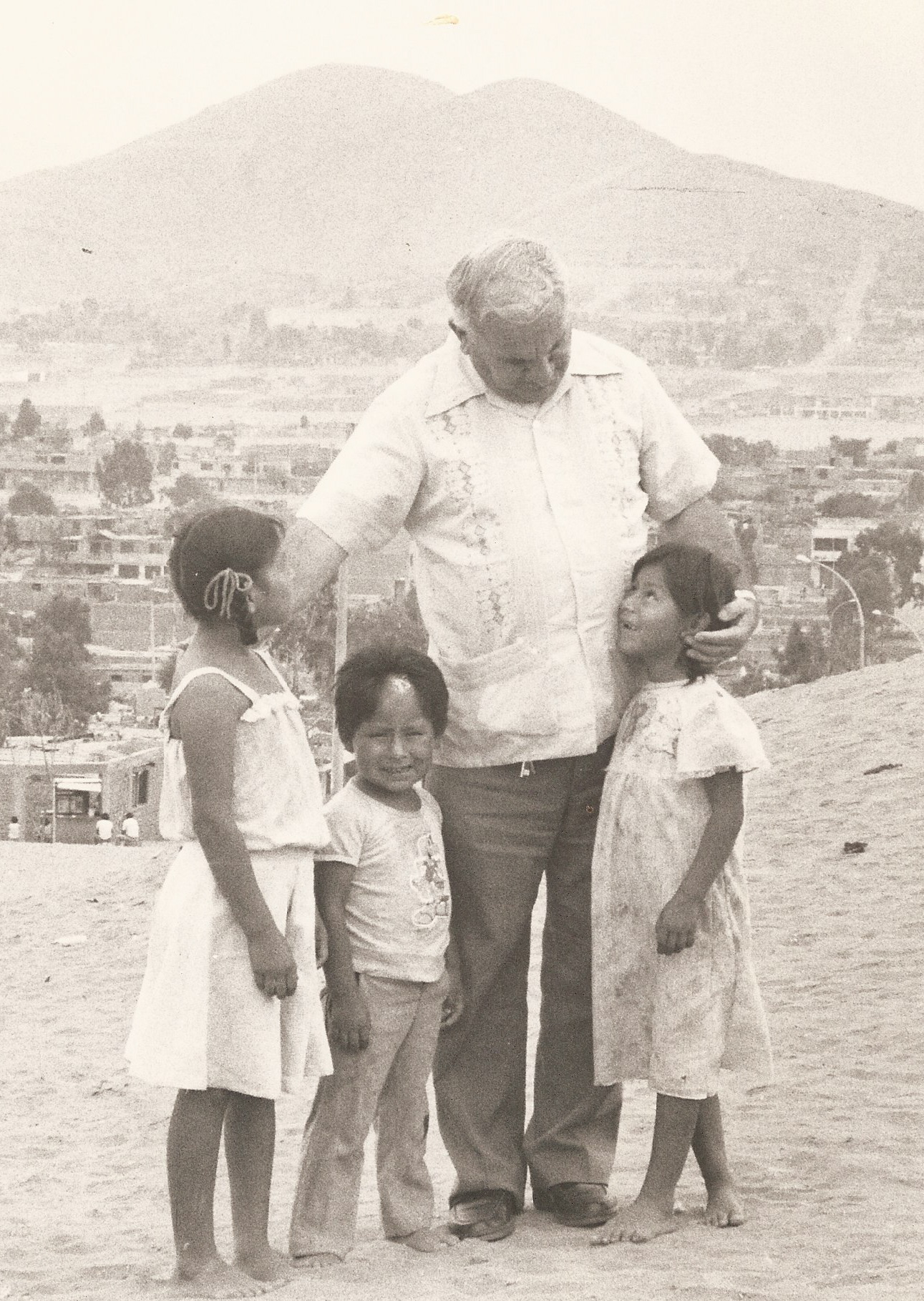

His Life
and Work
Born in Grand Rapids, Michigan, on March 15, 1924, to Frank and Mary Walijewski, Father Joseph Walijewski – or Father Joe, as he was mostly known – learned the hard lessons of poverty through his own experiences growing up during the Great Depression. Like many other families at that time, the Walijewski’s suffered through economic hardship, but held fast to their faith, at once so simple and yet so strong that it served to fill in the want and lack of material goods.
Since his early youth, Father Joe sought to serve God as a priest of His Church – and especially desired serving God all his days in missionary work. Some experiences during his youth helped form this calling. As a young boy, he would wander down to the city train station to watch fruit being unloaded, in part with the hope that he might receive a piece of fruit which had either fallen by chance from the crates or was given to him outright through the generosity of the station workers. One day, a worker handed him a banana – his favorite fruit – and when he discovered it had come from South America, this far away land became a source of growing fascination.
His Calling:
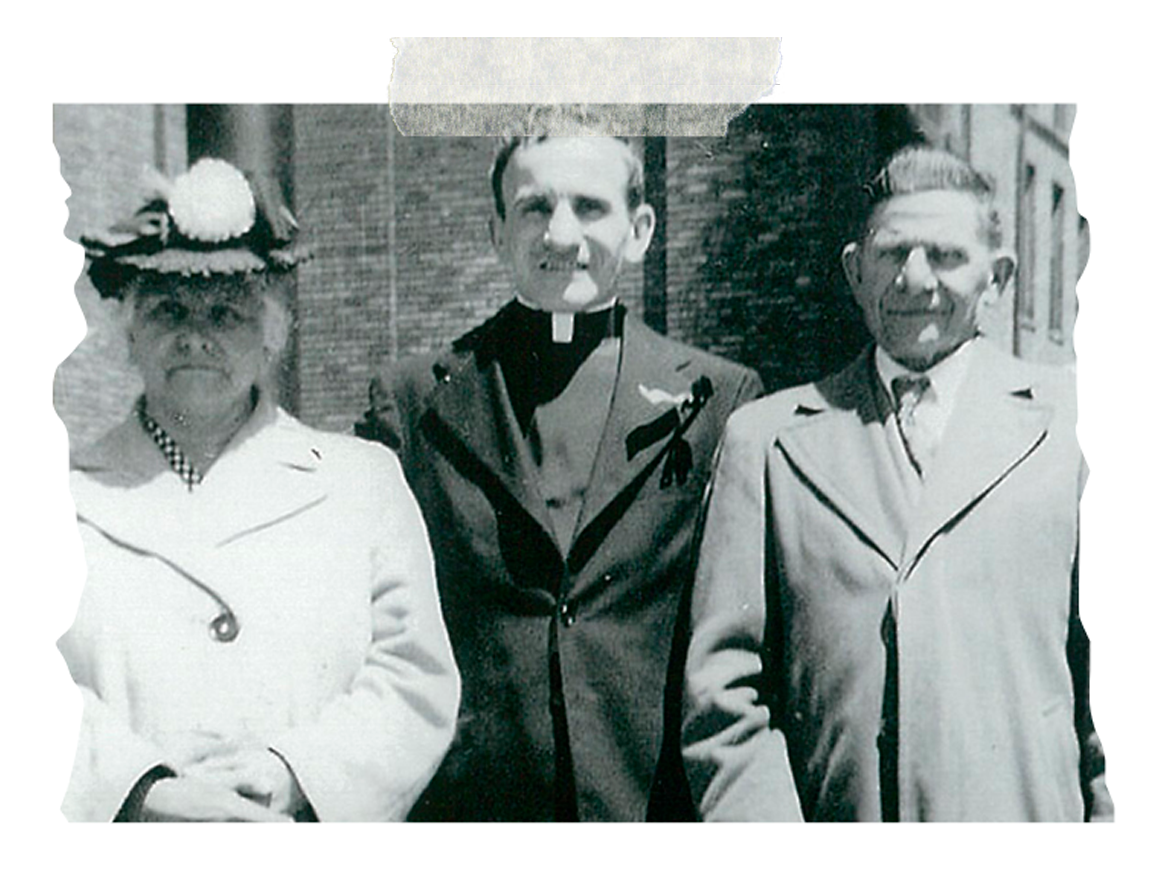
On the few occasions he could afford to attend the cinema, young Joe was also inspired by the 1938 film “Boys Town,” and its hero and founder, Father Edward J. Flanagan. Joe would watch the movie several times, marveling each time at Father Flanagan, as played by Spencer Tracy, and his gift of working with and engaging children.
It was a calling that was cultivated by his mother and, while his father was hesitant at first to let his son go away to seminary at a young age, he too eventually gave the young man his blessing to discern a calling to the priesthood.
His Mother’s Three Wishes:
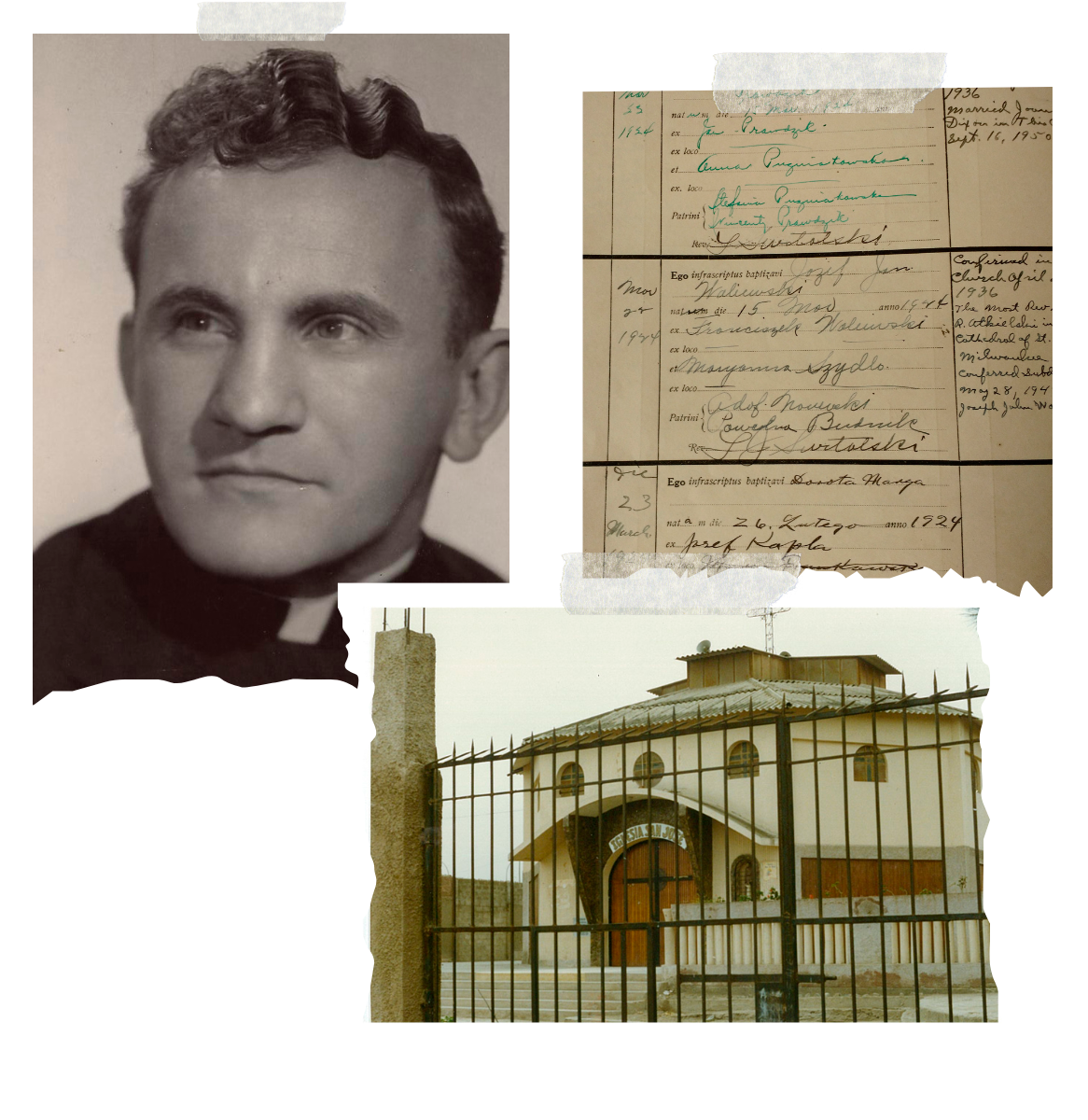
When speaking of his mother, Father Joe would often recall her three wishes – first, that she would have a son named Joseph who would become a priest; second, that he would build a church in honor of St. Joseph – which he did when he built the chapel of St. Joseph in Villa el Salvador, Peru, during his missionary days; and, third, that she would die on one of St. Joseph’s feast days – a request God fulfilled for her when He took her from this earth in 1971 on the Church’s universal Feast of St. Joseph, March 19.
A mother’s prayers and a son’s determination are one thing, but the mysterious will of God, as young Joe found out, was quite another. After successfully finishing his elementary and secondary education in Catholic schools in Grand Rapids, he was accepted at St. Bonaventure Seminary, Sturtevant, Wis., a Franciscan seminary which would help him achieve his dream of becoming a servant of God in the tradition of the beautiful beggar of Assisi.
A few challenges:
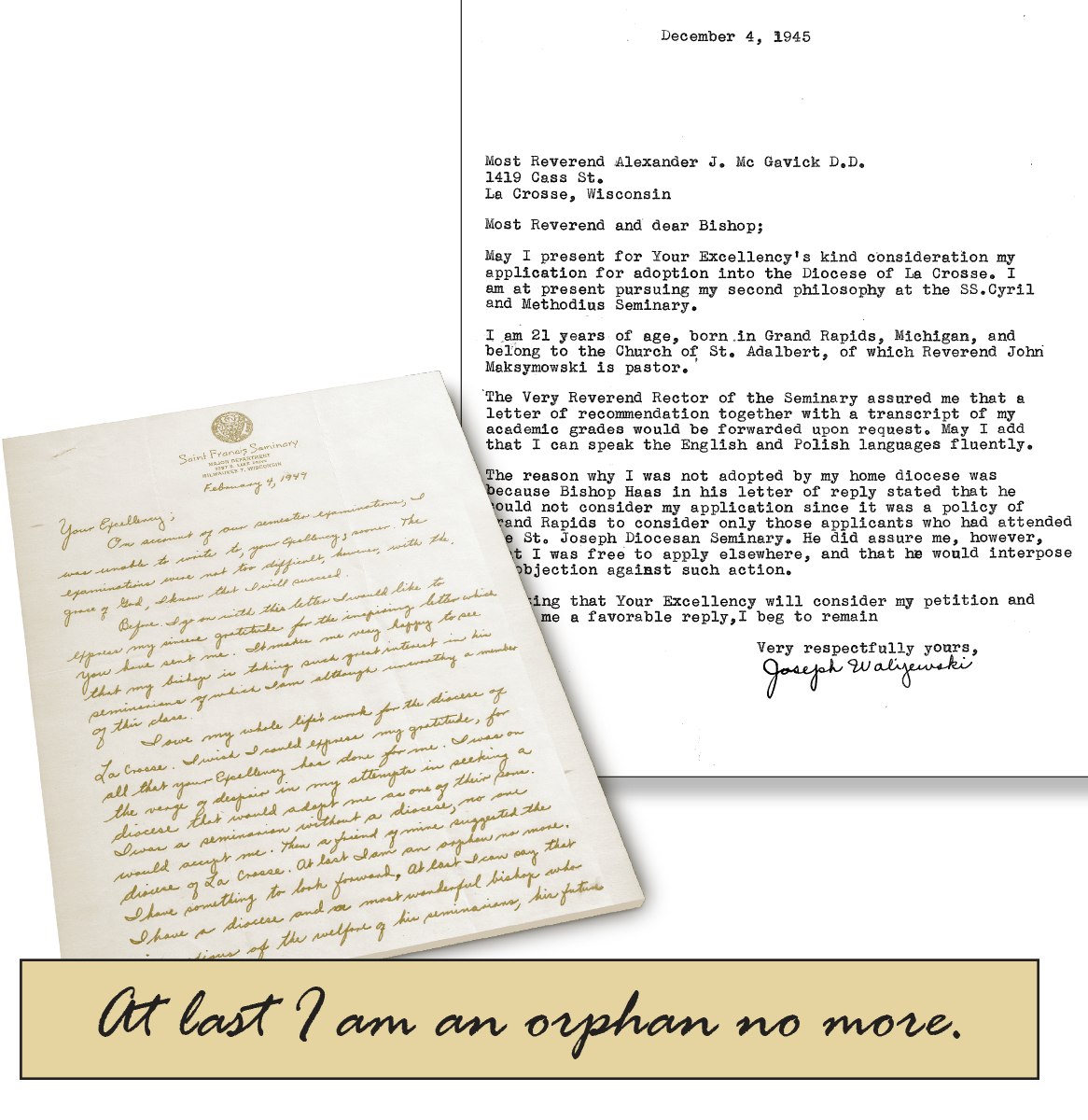
Unfortunately, at graduation, he was told by his superiors that, rather than a priest, he should become a religious brother. He assented easily to the theological propositions of the faith he learned in his classes; but it was the language requirement – at the time, Latin, Greek and French – which proved to be a continual challenge for the young seminarian.
Instead of surrendering his dream to become a priest, Joe successfully applied for admission at the Polish seminary at Orchard Lake, Mich., Ss. Cyril and Methodius. He continued to grapple with his academic responsibilities, but he made a promise to the Lord that should he complete his studies for ordination, he would dedicate five years of his priestly life to the work of a foreign missionary.
Accepted by La Crosse:
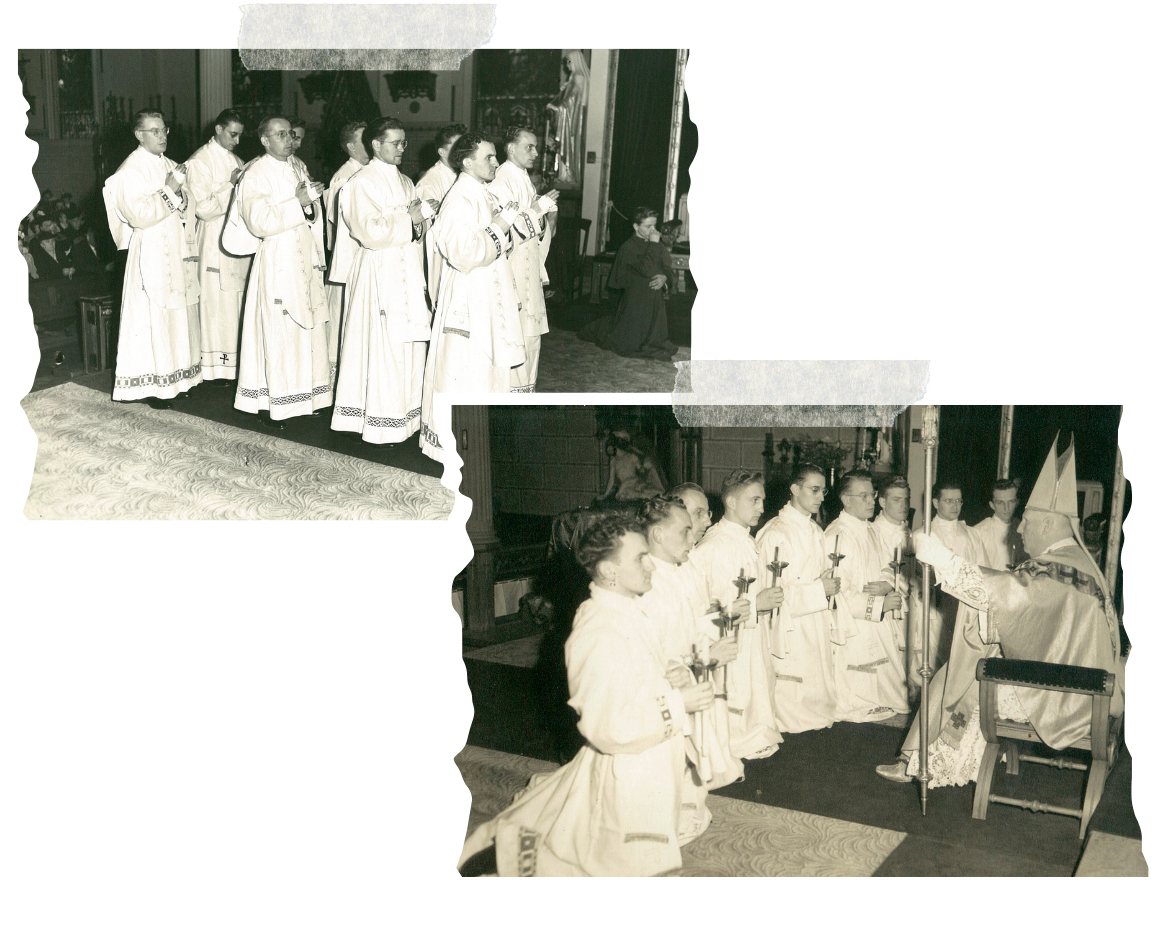
Granted this prayer – he would finish seminary at Orchard Lake – Joe faced a further challenge. His own Diocese of Grand Rapids would not accept him into its major seminary to study theology because he did not study in the diocese’s minor seminary. He was encouraged to look to other dioceses for sponsorship. Broadcasting letters to various bishops throughout the Midwest, Joe received a reply from only one – Bishop Alexander McGavick of the Diocese of La Crosse, who was looking for Polish-speaking priests to serve the Polish communities in his diocese.
Accepted by the Diocese, Joe entered St. Francis Major Seminary, Milwaukee, but his struggle with academics continued. While many among the faculty had little hope for the struggling seminarian, Monsignor John Schulien, a theology professor who befriended Joe at St. Francis, defended the young man.
“Joe Walijewski may not be the most intelligent priest,” he said to the other faculty, “but he will be a holy priest.” The priest-professor’s words were apparently convincing: Father Joe was ordained by Bishop John Patrick Treacy as a priest for the Diocese of La Crosse on April 16, 1950.
First Years as a Priest:
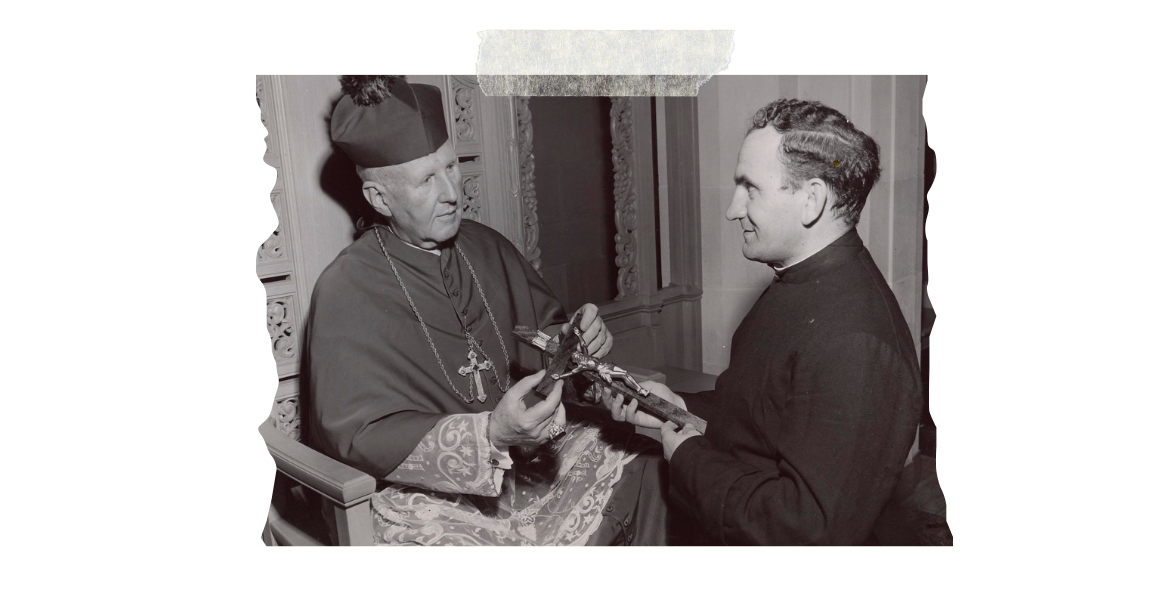
After being ordained a priest for the Diocese of La Crosse by Bishop John Patrick Treacy in 1950, Father Joe was first assigned as temporary assistant pastor at St. Paul Parish, Mosinee in and as assistant pastor at St. Hedwig Parish in Thorp. The following year, for his final assignment in the diocese before his first assignment as a missionary priest, he was appointed assistant pastor of St. Peter Parish in Stevens Point.
While serving at St. Peter Parish, Father Joe heard a visiting bishop make an appeal to support the foreign missions and the desperate need for priests in Bolivia. The bishop encouraged Father Joe to visit Santa Cruz, Bolivia if ever he had the opportunity. The invitation served as the right sort of yeast to activate his promise as a seminarian to our Lord. Subsequently, he submitted a formal request to become a diocesan missionary in South America. Seeing prudence as the better part of action, Bishop John Patrick Treacy counseled the young priest to take a year in prayer while continuing his service in the parishes to determine whether this was truly God’s will for his priestly ministry.
A Call to Serve as a Missionary:
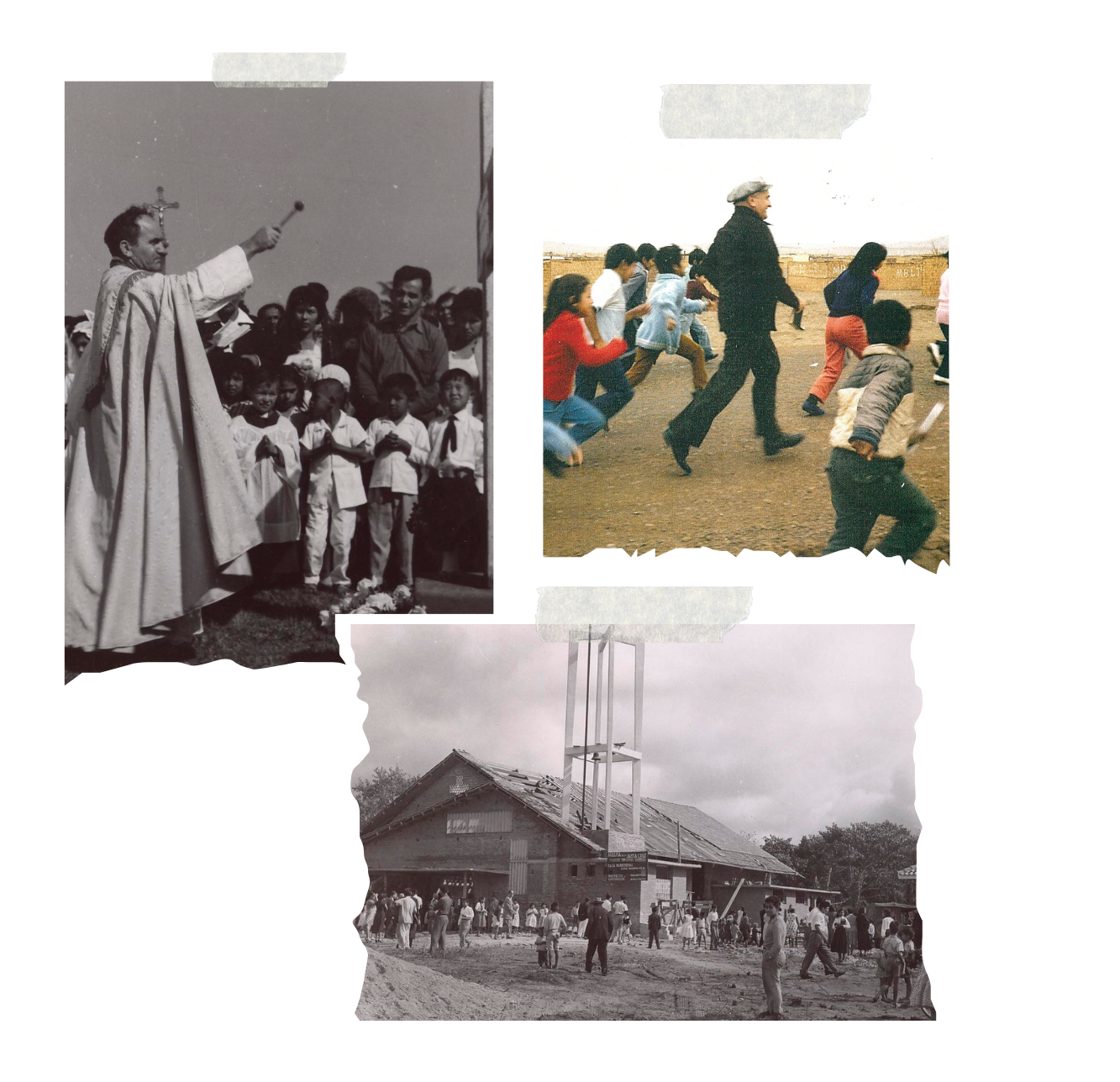
A year later, his desire to serve as a missionary burned stronger than ever, Father Joe returned to the bishop and resubmitted his request. In retrospect, he had the pope on his side at this time too. In 1957, Pope Pius XII published his encyclical “Fidei Donum” (“Gift of Faith”), which addressed the needs of the Church’s missionary territories throughout the world and served as a personal call from the pope to do exactly what Father Joe proposed the year before to Bishop Treacy. The encyclical also encouraged diocesan bishops to share their priests generously with missionary territories. In 1956, the faraway land of South America would not seem so far anymore to Father Joe as he was released from his diocesan duties to go to Santa Cruz.
Arriving in Bolivia later that year, Father Joe became a trailblazer of missionary work in that country. Handed a machete by Bishop Charles Brown Auxiliary Bishop of the Diocese of Santa Cruz, Padre Jose joined the bishop in hacking through the jungle until they found a fit place to build a church. “Build a church here,” Bishop Brown said to Padre Jose, “and the people will come and build their homes next to it.” Today, helping to support a burgeoning population of 1.2 million people, the Parish of the Holy Cross is not far from the urban center of Santa Cruz.
Padre Jose first built Holy Cross Parish in Bolivia, and a rectory and school for the parish, and then served the parish for the next 10 years. However, but before he left Bolivia, the seeds were planted for his next mission to South America. Attending a Eucharistic Congress sponsored by the Diocese of Santa Cruz, Bolivia, he met the Archbishop of Lima, Peru, who invited Padre Jose to come to his archdiocese if he were ever to return to South America.
A Return to Parish Life:
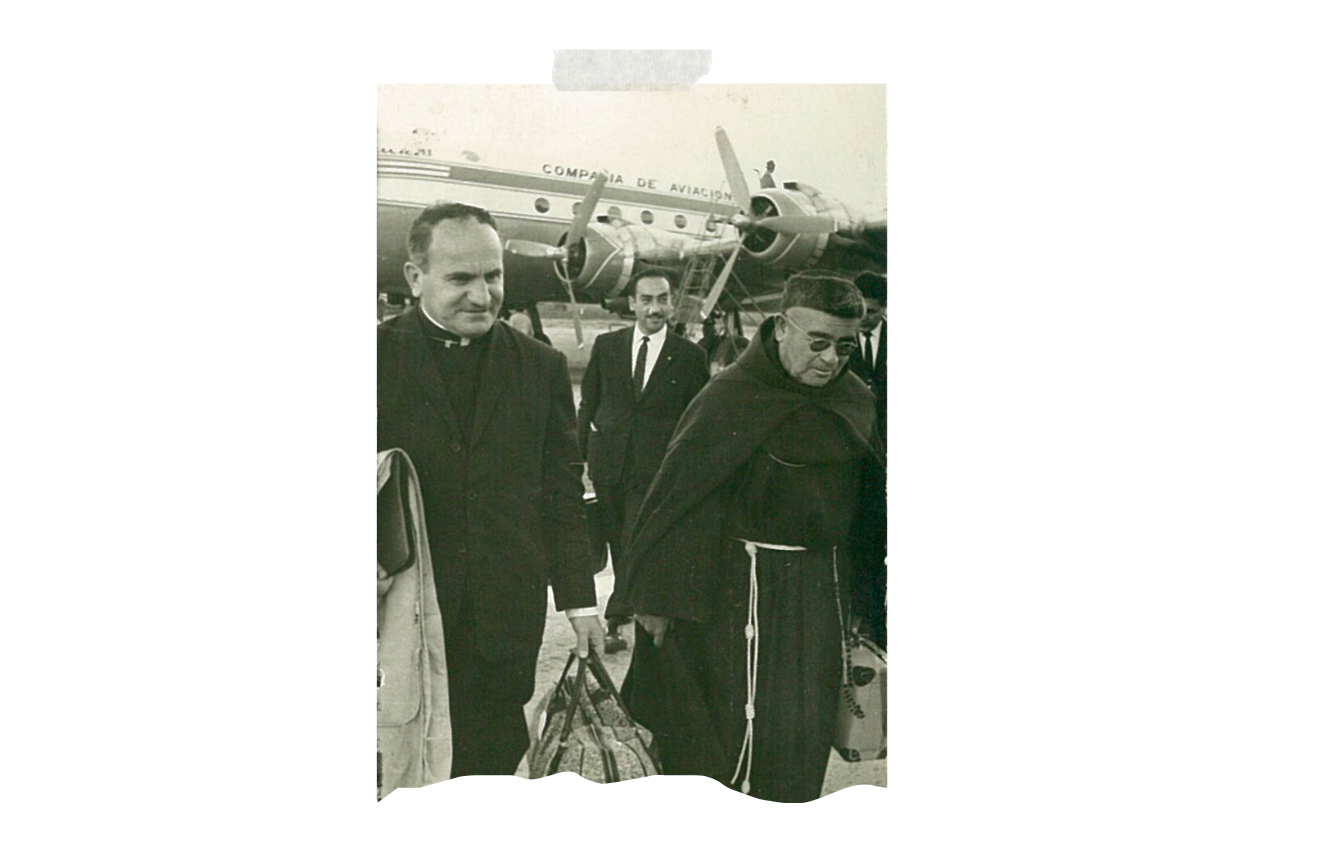
He returned to the Diocese of La Crosse in 1966 and was appointed administrator of St. John Parish in Heffron; and Guardian Angels Parish in Almond. Three years later, he was also appointed administrator of St. Martin Parish in Buena Vista. He also became Associate director of the Migrant Worker Apostolate in the diocese. Later that same year, 1969, Father Joe returned to St. Hedwig’s for his first assignment as a pastor.
Missionary Work in Peru:
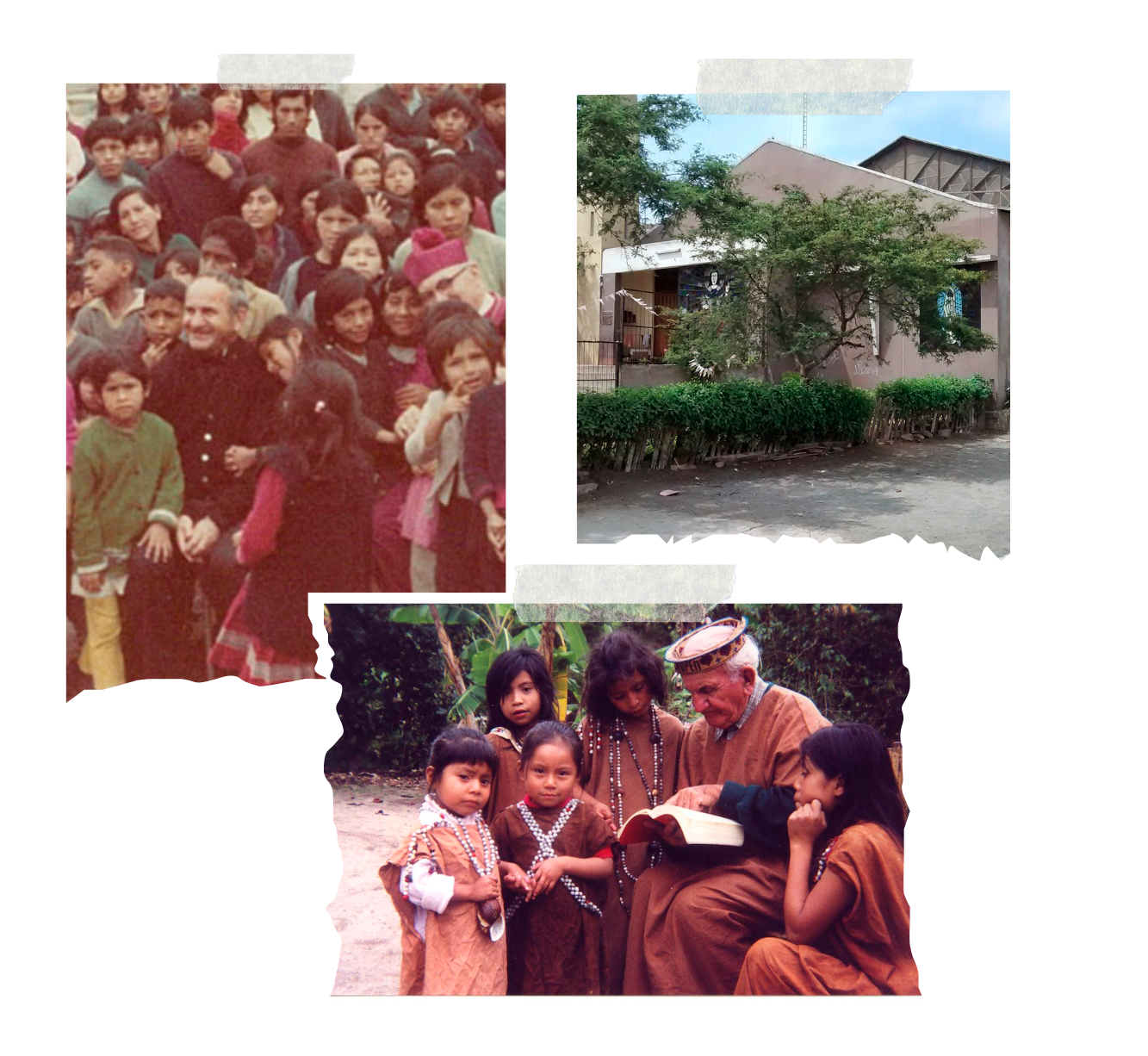
In 1971, taking up the archbishop of Lima’s invitation, he returned to missionary work, this time in Lima, Peru. Nine years later, through his own efforts in cooperation with God’s grace, he was named pastor of a new barrio on the outskirts of Lima: Villa El Salvador (City of the Savior).
Turning the Villa El Salvador Parish over to two young Peruvian priests in 1986, Father Joe purchased five acres of land in the town of Lurin, Peru, to build an orphanage. When Pope Saint John Paul II visited Villa El Salvador in 1987, he gave $50,000 for work among the poor. The cardinal and clergy of the city voted to give the money to Padre Jose for his orphans’ home. The orphanage was named Casa – Hogar Juan Pablo II, which translates “House – Home of John Paul II,” and used his beloved Father Flanagan’s Boystown as its model for administration and service to the children.
Father Walijewski ran Casa Hogar Juan Pablo II until the year 2000 when he turned the orphanage over to a younger priest, Father Sebastian Kolodziejczyk, also of the Diocese of La Crosse. Padre Jose, who was 76, was not done. He moved to Oxapampa, Peru, where he lived at a house with adults that had grown up at Casa Hogar. He helped establish a home for the elderly to be staffed by consecrated women religious and drove into the rain forest on Sundays to celebrate Mass for the small communities of Ashiko Indians.
His Death:
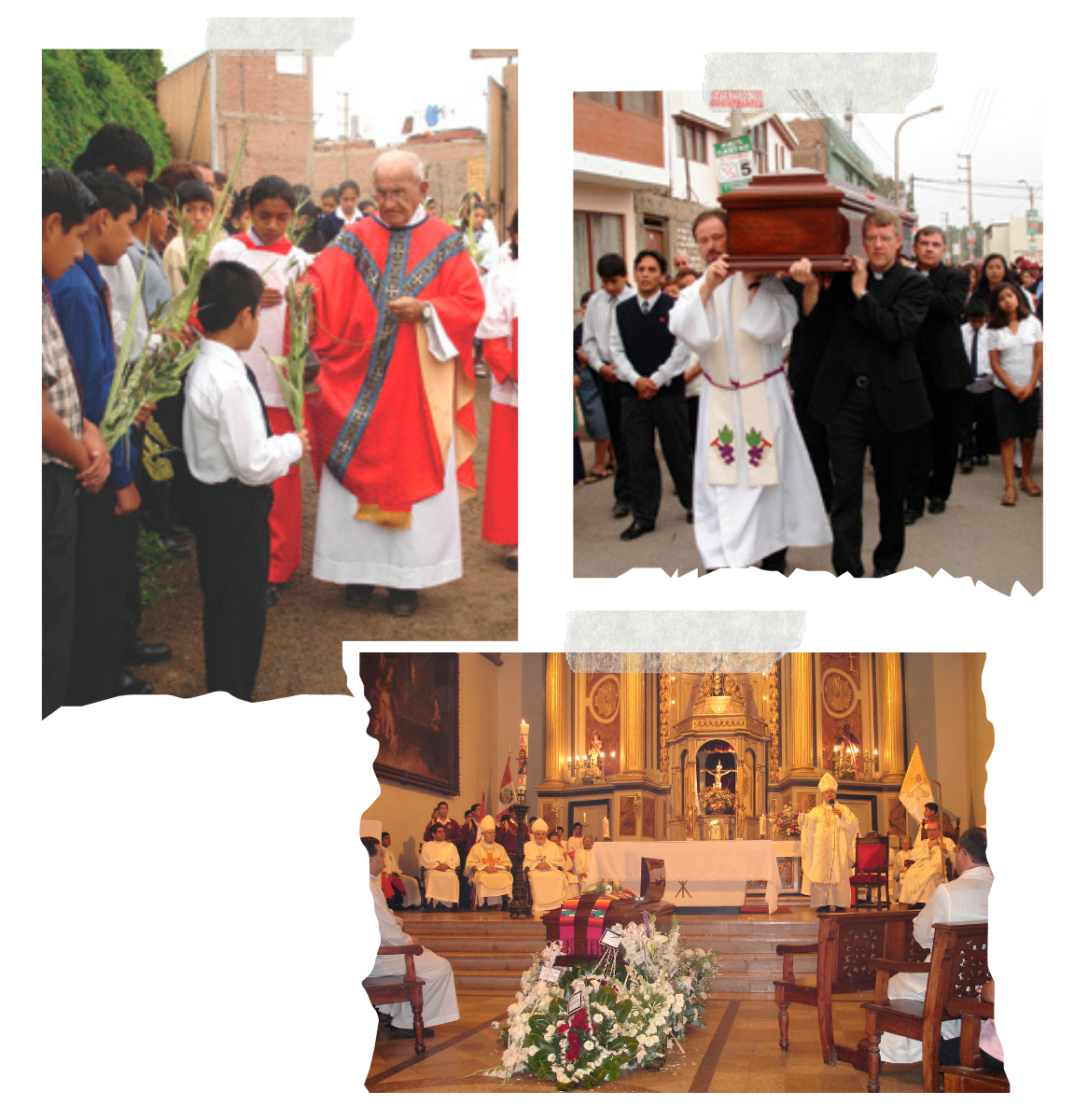
Padre Jose died as he wished – while working among the poor. Shortly after celebrating Palm Sunday Mass at Casa Hogar, he became ill. He was taken to a hospital in Lima where, two days later, he passed away of pneumonia and acute leukemia on April 11, 2006.
On May 18, 2006, brother priests, family and friends from the diocese gathered at St. Joseph the Workman Cathedral in La Crosse for a memorial Mass and to pay their last respects to their beloved Father Joe. The homily was delivered by then-Father Roger Scheckel.
“We recall and give thanks today for a true servant of God,” Monsignor Scheckel, director of the diocesan Office of Missions said in his homily, “who gave himself completely for the love of God and neighbor, particularly through the ministerial priesthood.”
As a way to highlight the eternal goodness of God’s will and not the vagaries of the moment, Father Joe would often say to others who were feeling overwhelmed by events and circumstances, “Don’t worry, nothing will be all right.” But his final words sum up beautifully his vision and optimism for the world to come, a world which he sought to bring to earth in service to God and the poorest of the poor among His people. Offering a reversal of his usual diagnosis, he said, “Don’t worry, everything will be all right.”
 Your prayers and financial support advance the Father Joseph Walijewski Legacy Guild.
Your prayers and financial support advance the Father Joseph Walijewski Legacy Guild.
